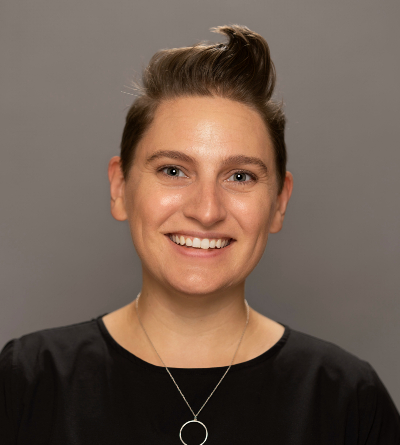By Jenna Somers

Associate Professor of Special Education Jessica Logan has always been interested in child development, specifically the growth of academic skills in young children at risk for learning disabilities. She seeks to understand how children learn and the contexts in which they learn, exploring questions such as, “Why do some kids struggle with learning to read?”
But for Logan, it’s not enough to ask a research question and then develop a methodology. The methodology itself must be studied to understand whether it is best for answering the question. As new questions arise, new statistical methods may need to be designed and implemented. Likewise, new designs may generate new questions that otherwise could not be answered.
In graduate school, Logan’s passion for developmental science spurred her passion for quantitative methodology. Now she uses her skills not only to improve her own work but to study the statistical methodologies used in her field, and to support her colleagues in developing and refining their research designs. In short, Logan is a meta-scientist on a mission.
“Metascience is really at the heart of everything I do. I study what methods researchers are using to understand questions about child development and how we can innovate and improve methods to better align with those questions. If we want to ensure the best outcomes for children, we should study problems using the methods that best address each question,” Logan said.
To support her colleagues, Logan leads workshops on best practices for data management and data sharing, and how to implement novel statistical methods to rescue research projects marred by missing data.
In a recent project supported by a $837,860 grant from the National Institutes of Health, Logan and her colleague Sara Hart, professor of psychology at Florida State University, are developing intensive short courses in data management and data sharing for researchers in children’s learning and development. Data management concerns processes for collecting, organizing, validating, and securing data. Data sharing refers to the practice of sharing research data for use by other investigators.
Logan says that roughly 80 percent of researchers in the field of children’s learning and development do not share their data, but interest in developing best practices for data sharing is growing. As part of this grant, Logan will host 20 investigators in the field of developmental science for a five-day course in data management and data sharing at Vanderbilt Peabody College of education and human development in August. She invites prospective attendees to complete an interest form. Courses supported by this grant have the potential to improve data management and sharing practices in the field of children’s learning and development, which ultimately could improve the work of practitioners and outcomes for the children they serve.
Logan and Hart don’t just educate colleagues through workshops. In the early days of the COVID-19 pandemic in 2020, when physical isolation was hindering the professional growth of many early-career researchers, Logan and Hart began cohosting the podcast Within and Between. They wanted to reach a wide audience of young developmental scientists, many of whom peppered them with questions about the methods and metascience of developmental science and professional development concerns. As the tagline for the inaugural episode states, “When one person asks for advice, you give it to them. When five people ask you for advice, you start a podcast.” Through four seasons, Logan and Hart have offered advice on topics such as the open science practice of preregistering research plans publicly, developing research questions, deciding on which conferences to attend and why, preparing for annual faculty reviews, and of course, all things data management.
And when Logan, Hart, and several of their colleagues asked each other for advice on navigating systemic inequities in their field, the group co-founded POWER (Providing Opportunities for Women in Educational Research), a non-profit organization to connect, support, and advocate for researchers who identify as women or non-binary in the fields of education and child development.
“Women have held the majority of Ph.D.’s in education for a very long time—it’s a unique field in that way—but they hold fewer positions of power, so they are less likely to remain in the field. Early in their careers, researchers are postdocs and assistant professors, and female researchers who have children during this time are often held back. The tenure clock gets pushed back, but that pushes back raises and promotions, which affects their perception within their departments and their ability to contribute to science. They might get entry-level academic positions, but they occupy fewer leadership roles, are less likely to achieve tenure, and are less likely to receive federal funding than their male peers,” Logan said.
To help close the gap, POWER has a database to connect women and non-binary researchers in education and child development. The database can help users find potential research collaborators, mentors, colleagues who can write letters of support, and more.
Additionally, POWER provides a list of resources and hubs to connect researchers based on geographic locations and research specializations. The organization also hosts online and in-person networking events and has an active email listserv. Membership is free and open to any researcher in the field of education or child development.
As a researcher, podcaster, and leader of a non-profit, Logan wears many different hats, but no matter which one she wears at any given time, her mission is the same: to help improve the scholarship of education and developmental science researchers, so that their work can lead to better outcomes for children.